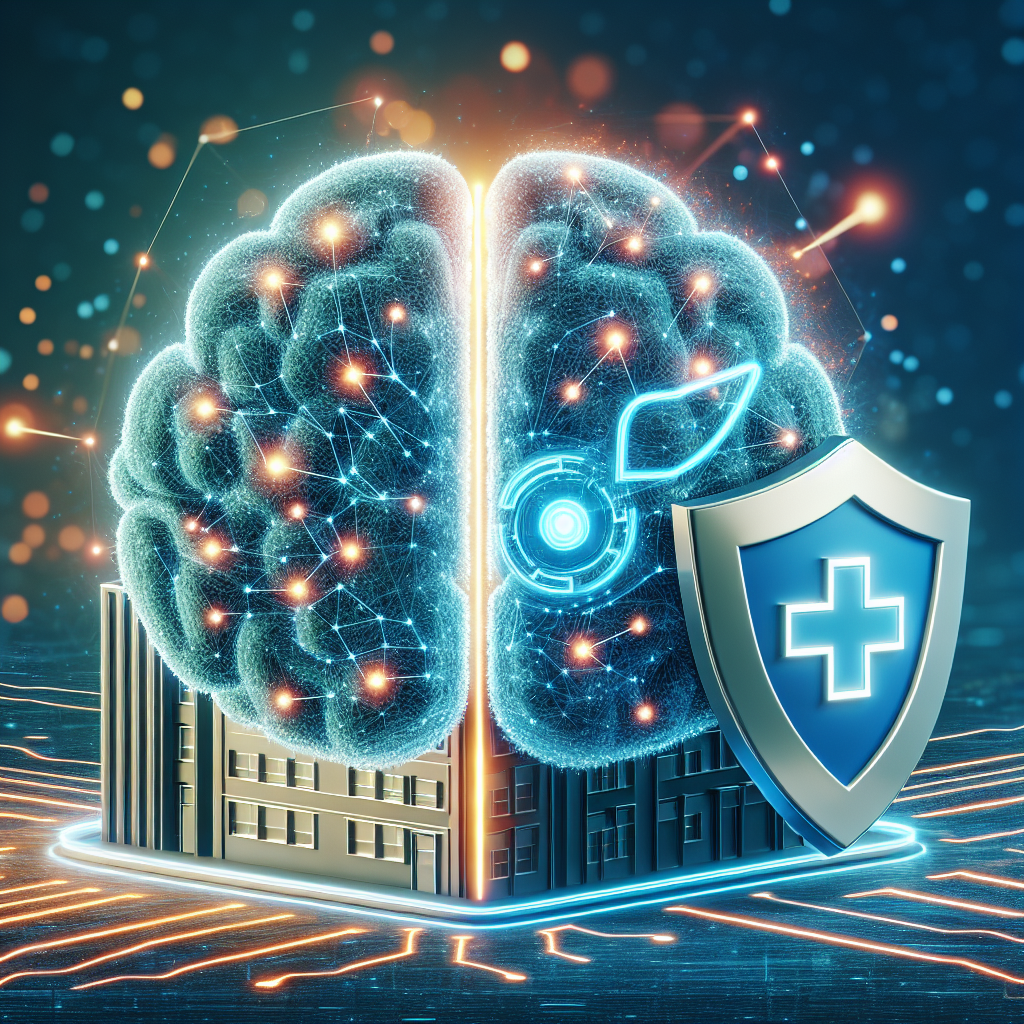In recent years, artificial intelligence (AI) has been making a significant impact on various industries, including healthcare. AI has the potential to revolutionize the way healthcare is delivered, making processes more efficient, improving patient outcomes, and reducing costs. However, with the widespread adoption of AI in healthcare comes the need to address security concerns that may arise. In this article, we will explore the impact of AI on healthcare security and address some frequently asked questions on the topic.
The Impact of AI on Healthcare Security
AI has the potential to transform healthcare in numerous ways, from diagnosing diseases more accurately to optimizing treatment plans and predicting patient outcomes. However, as AI systems become more prevalent in healthcare settings, the security of these systems becomes a critical concern.
One of the key security challenges of AI in healthcare is the protection of patient data. With the increasing amount of personal health information being collected and analyzed by AI systems, there is a greater risk of this data being compromised. Healthcare organizations must implement robust security measures to safeguard patient data and ensure compliance with regulations such as the Health Insurance Portability and Accountability Act (HIPAA).
Another security challenge posed by AI in healthcare is the potential for malicious actors to manipulate AI algorithms. Hackers could potentially tamper with AI systems to alter diagnoses, treatment recommendations, or patient records, leading to serious consequences for patients. Healthcare organizations must implement safeguards to prevent unauthorized access to AI systems and ensure the integrity of the data being processed.
Additionally, the use of AI in healthcare introduces new vulnerabilities that may not be present in traditional healthcare systems. AI algorithms rely on vast amounts of data to make decisions, and any inaccuracies or biases in this data can lead to erroneous results. Healthcare organizations must carefully evaluate the data used to train AI systems and implement mechanisms to detect and correct biases to ensure the accuracy and fairness of AI-generated insights.
Furthermore, the interconnected nature of healthcare systems means that a security breach in one part of the system can have far-reaching consequences. As AI systems become more integrated into healthcare infrastructure, the potential for cyberattacks to disrupt critical healthcare operations increases. Healthcare organizations must implement strong cybersecurity measures to protect against such threats and ensure the continuity of care for patients.
Despite these challenges, the benefits of AI in healthcare are undeniable. AI has the potential to improve patient outcomes, increase operational efficiency, and reduce healthcare costs. By addressing security concerns proactively and implementing robust security measures, healthcare organizations can harness the power of AI to enhance the quality of care provided to patients while safeguarding their sensitive information.
Frequently Asked Questions
Q: What are some of the key security challenges of AI in healthcare?
A: Some of the key security challenges of AI in healthcare include the protection of patient data, the potential for malicious manipulation of AI algorithms, the presence of biases in AI-generated insights, and the increased vulnerability to cyberattacks.
Q: How can healthcare organizations protect patient data when using AI systems?
A: Healthcare organizations can protect patient data by implementing robust security measures such as encryption, access controls, and regular security audits. Organizations should also ensure compliance with regulations such as HIPAA to safeguard patient information.
Q: How can healthcare organizations prevent unauthorized access to AI systems?
A: Healthcare organizations can prevent unauthorized access to AI systems by implementing strong authentication mechanisms, monitoring access logs for suspicious activity, and restricting access to sensitive data to authorized personnel only.
Q: How can healthcare organizations address biases in AI-generated insights?
A: Healthcare organizations can address biases in AI-generated insights by carefully evaluating the data used to train AI systems, implementing mechanisms to detect and correct biases, and conducting regular audits to ensure the accuracy and fairness of AI-generated insights.
Q: What cybersecurity measures should healthcare organizations implement to protect against cyberattacks?
A: Healthcare organizations should implement cybersecurity measures such as network segmentation, intrusion detection systems, regular security assessments, and employee training programs to protect against cyberattacks and ensure the continuity of care for patients.
In conclusion, the impact of AI on healthcare security is a complex and multifaceted issue that requires careful consideration and proactive measures to address. While AI has the potential to revolutionize healthcare delivery and improve patient outcomes, healthcare organizations must prioritize security to protect patient data, prevent unauthorized access, address biases in AI-generated insights, and safeguard against cyberattacks. By implementing robust security measures and continuously monitoring and updating their systems, healthcare organizations can harness the power of AI to enhance the quality of care provided to patients while ensuring the privacy and security of their sensitive information.

